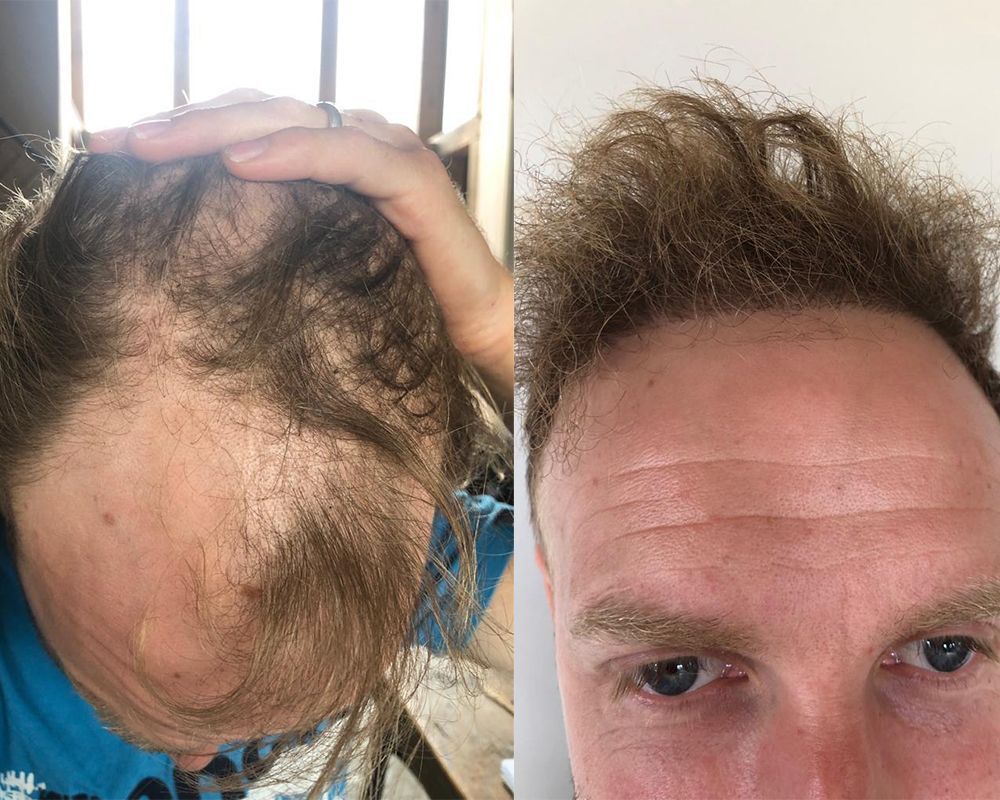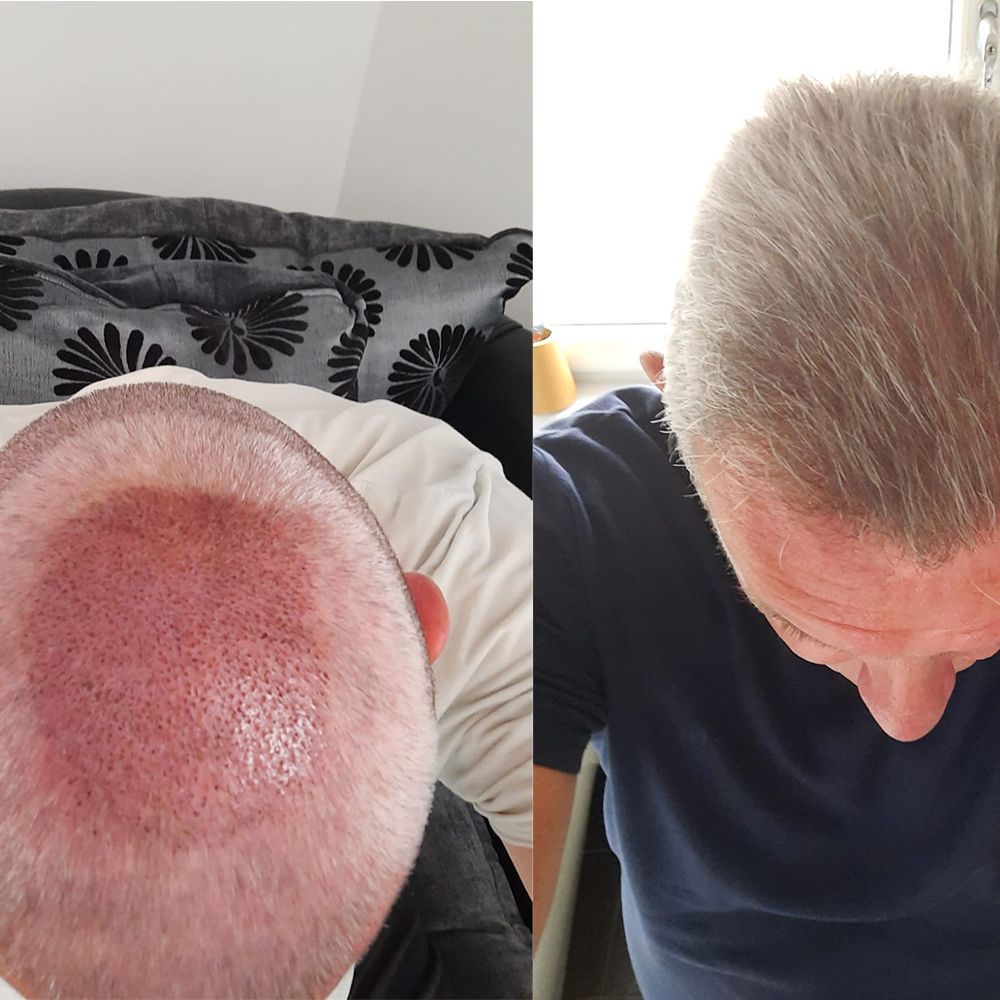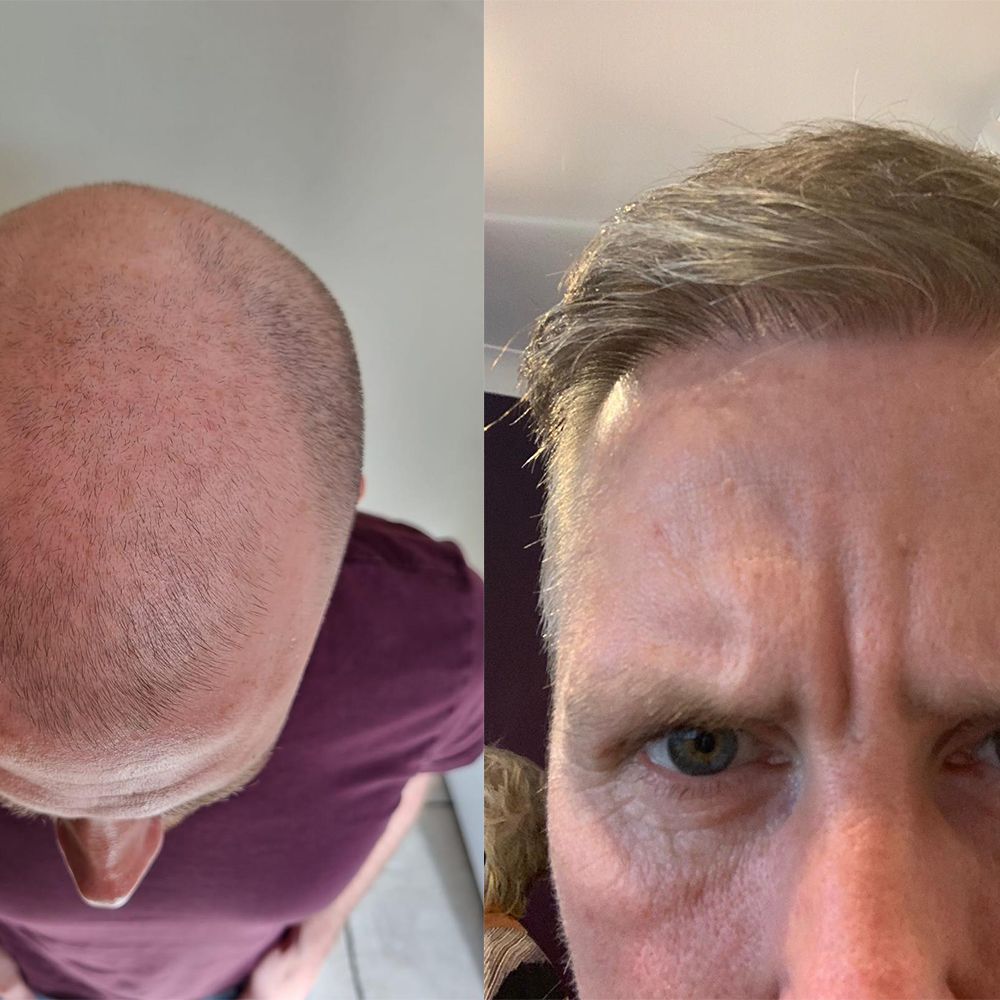Hair Loss
HOME > Hair Loss
Hair Loss
OUR CERTIFICATIONS:
REQUEST A QUOTE
We will get back to you as soon as possible.
Please try again later.

Slide title
Write your caption hereButton
Slide title
Write your caption hereButton
Slide title
Write your caption hereButton
Hair loss affects more than just your scalp. It may also have an effect on how you feel about yourself physically and how confident you are around other people (self-image). Hair loss can be brought on by hormonal changes, illnesses, inherited traits from one generation to the next, and even by taking specific medications. Hair loss can happen to men, women, and kids at any time in their life.
When individuals discuss baldness, they typically refer to hair loss from the scalp that is excessive or thinning. The most frequent cause of baldness in both men and women is hereditary patterned hair loss. Harley Street Hair offers the best hair loss treatment in Liverpool and all over the UK.
There are various ways that hair loss might show up. The reason for the hair loss will ultimately determine how quickly it manifests. Additionally, sometimes hair loss only affects the scalp, whilst in other cases, it can affect the entire body. The kind of hair loss also influences whether it is short-term or long-term. Symptoms of hair loss include circular or patchy bald spots, patterned hair loss, and full-body hair loss. At Harley Street Hair, we offer our patients affordable laser hair-loss treatments that will help them regain their confidence. Each laser hair loss treatment for men is done by our highly experienced doctors, so our clients have nothing to worry about!
People typically lose 50 to 100 hairs per day. When it occurs, there is no discernible thinning of scalp hair because new hair is growing at the same time, so there is no need to be concerned. In regular patterned hair loss, hair shafts shrink with each new hair development cycle until they are hardly undetectable. When the cycle of hair development and shedding is disturbed for a variety of causes, hair loss results.
Even with ongoing medical technology advancements, the precise reason for hair loss is still not entirely understood. However, a few causes of hair loss are heredity, medications, hormonal imbalance, and Autoimmune Conditions.
WHY DOES HAIR LOSS HAPPEN?
The average scalp contains about 100,000 hairs, and it is normal to lose around 100 of them every day.
However, due to genetics, as we grow older, the number of hair we lose increases in both men and women. This is called inherited hair loss, and about half of all people get it by the age of fifty. Those with inherited hair loss are genetically more sensitive to testosterone, which causes hair follicles to shrink.
Overall, men’s bodies create larger quantities of this hormone. Therefore, some of them begin to lose their hair at the age of 21, and a large percentage develop bald patches by the age of 40.
Women tend to lose more hair due to testosterone following menopause after the age of 45. Nevertheless, shifts in their hormone levels because of changes in their menstrual cycle, childbirth, and birth control pills can lead to hair loss even before then, but it usually grows back.
WHAT CAUSES HAIR LOSS?
- Although balding tends to come with aging, even children can suffer from it. Ringworm of the scalp is quite common in infants. Teenagers and young adults tend to suffer from a rare cause of hair loss: trichotillomania. This is a stress-related compulsive behavior in which a person pulls hairs out from all over his body.
- Another reason for hair loss, regardless of age, is malnutrition. Research has specifically linked it to a lack of protein and iron. Furthermore, in some studies, it has been connected to excessive smoking. When the individual develops a healthier lifestyle, hair tends to grow back quite quickly.
- It takes a long time (almost a year) for people that suffer from alopecia areata to grow their hair back. This disease specifically attacks hair follicles and results in round-shaped hairless patches on the scalp and the rest of the body or overall hair thinning.
- Thyroid diseases (hypothyroidism and hyperthyroidism), if not treated, sometimes lead to hair loss as well, as do more rare diseases such as lupus and syphilis. The hair, in these cases, tends to grow back again when the patient takes the appropriate medication.
- Cancer, both when left untreated and when treated with chemotherapy, leads to non-permanent hair loss. In addition, certain medicines or medical treatments, such as blood thinners, may cause hair loss in some individuals, but not permanently.
- Last but not least, certain hair grooming products, hair dyes, curling irons, and hairstyles weaken our hair and sometimes causes hair loss.
- A lot of our clients use Harley Street Hair Transplants due to the aforementioned issues.
MALE HAIR LOSS
Male pattern baldness (androgenetic alopecia) is the most common cause of hair loss in men, and studies have shown that it is inherited from their mothers as it is found in the X chromosome. According to the American Hair Loss Association, between 65% and 80% of males will experience some degree of androgenetic alopecia during their lifetime. Typically the hair loss will start in the form of a receding hairline and then may also develop in the crown area.
FEMALE HAIR LOSS
There are three primary types of hair loss in women: androgenetic alopecia, telogen effluvium, and non-pattern hair loss. Androgenetic alopecia is the most common form of hair loss in women. The pattern of hair loss in women with this condition is often less predictable than in men. There are many potential causes of telogen effluvium, including medication use, dietary tendencies, and stress. There are also rarer types of hair loss that fall into the ‘non-pattern hair loss’ category.
CONCLUSION
To conclude, hair loss is rarely a disease on its own, far from it. It is something that happens naturally to everyone. More excessive hair loss as we grow older is normal. However, it might be an indicator of an underlying health problem if it persists for more than a couple of months. It becomes necessary that you inform your doctor about it or/and fill out the form provided for a FREE consultation with one of our best hair transplant specialists.
RELATED INFORMATION
Find out more about hair loss by viewing other pages about the topic below
Quick Links
All Rights Reserved




